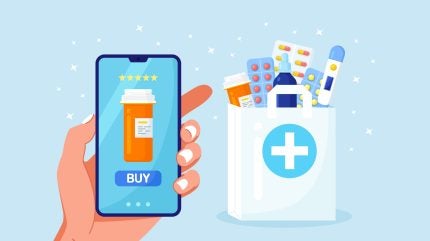
Novo Nordisk is the latest drugmaker to slash the price of a blockbuster medicine via its online platform amid drug pricing reforms in the US, but analysis shows a smooth transition to direct-to-consumer (DTC) channels will be tricky.
US President Donald Trump has made reducing drug prices in the country one of his administration’s key targets. He has spearheaded this goal with the Most Favoured Nation (MFN) policy, a legislative framework that would tie US drug prices to the lowest prices in other developed countries.

Discover B2B Marketing That Performs
Combine business intelligence and editorial excellence to reach engaged professionals across 36 leading media platforms.
As part of this push, Trump has urged pharmaceutical companies to embrace DTC business models. This includes companies establishing their own platforms or opting in to those from third parties that cut out middlemen, meaning final drug prices are lower.
GlobalData’s senior pharma strategic intelligence analyst Wafaa Hassan comments: “The [DTC] development, closely tied to the administration’s ‘America First’ healthcare agenda and its revived MFN pricing framework, marks a renewed phase of pressure on drugmakers to lower domestic prices while signalling alignment between the White House and the pharmaceutical industry.”
Earlier this year, Novo Nordisk unveiled its DTC platform NovoCare Pharmacy with a heavily discounted price for weight loss drug Wegovy (semaglutide). Just this week, the drugmaker added type 2 diabetes treatment Ozempic (semaglutide) to the platform. Both drugs are available to cash-paying patients for $499 each for a monthly supply. The list price of both drugs in the US sits at around $1,300 per month.
While the move to discount the two drugs is more likely a response to the popularity of cheaper compounded alternatives, Trump will nevertheless be pleased with Novo’s decision. Ozempic – a drug that generated global sales of $10bn in Q2 this year alone – being available for cheaper on a DTC platform is a coup Trump will likely point to in the face of criticism for his pricing reforms.

US Tariffs are shifting - will you react or anticipate?
Don’t let policy changes catch you off guard. Stay proactive with real-time data and expert analysis.
By GlobalDataHowever, challenges such as a limited patient awareness and disruption to traditional distribution channels could hinder the adoption of the DTC models by pharma companies, according to analysis by GlobalData.
Hassan adds: “From a drugmaker perspective, more challenges will occur following the initiatives, such as new operational demands, margin pressure and potential friction with insurers. The likelihood of success will only depend on how well the pharma industry navigates these trade-offs in the upcoming months.”
Novo is far from the only big pharma company bolstering DTC medicine offerings. Novo’s main rival in the GLP-1RA arena, Eli Lilly, has also conducted similar moves. The company began offering its weight loss medication Zepbound (tirzepatide) to self-paying patients at a steep discount on its own DTC platform LillyDirect in 2024.
Taking a page from the two GLP-1RA developers, Bristol Myers Squibb (BMS) and Pfizer also established a DTC online programme for their blockbuster blood thinner Eliquis (apixaban) in July. BMS, Pfizer, Eli Lilly, and Novo Nordisk were among 17 pharma companies to receive a letter from Trump requesting more steps be taken by them to cut drug prices.




